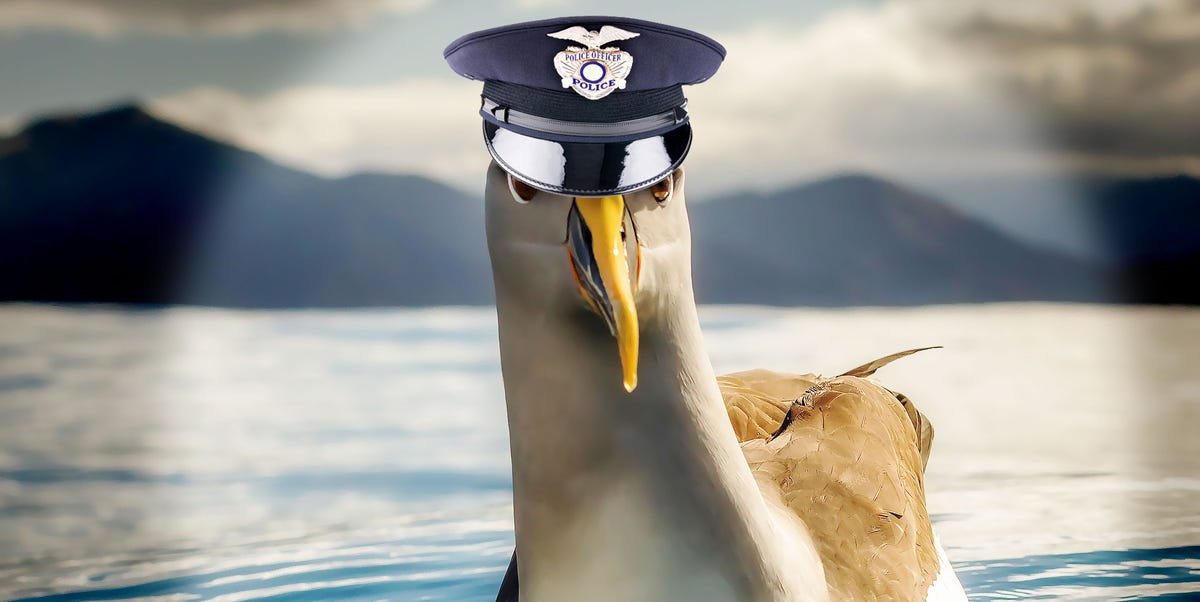
- Albatrosses wearing radar have found that 26 percent of local ships and 37 percent in international waters are hiding from observation.
- The Crozet Islands are a French nature conservancy that's host to unique wildlife and a lot of scientific research.
- Fishing boats with illegally switched-off radar are likely engaged in illegal fishing behaviors like poaching.
Scientists have attached radar detectors to seabirds in the Indian Ocean, and the birds have unearthed shocking statistics about illegal fishing.
Researchers working in the far south of the Indian Ocean attached radar devices to 169 local albatrosses, who they then monitored for six months. Albatrosses are naturally drawn to fishing boats and can see them from almost 20 miles away, making them de facto living radar detectors equipped in turn with the real thing.
The scientists based their research in the Crozet Islands, a distant part of the French overseas empire and fully designated as a nature conservancy. They’re below the Antarctic Circle, just 1,500 miles from Antarctica and 1,500 miles away from the nearest inhabited land mass of Madagascar. Isolated islands are a great place to study the exact technology these scientists wanted to monitor: the radar-based automatic identification system (AIS), which all ships over a certain size must keep switched on at all times unless they’re protected intelligence vessels or a few other exceptions.
By monitoring local albatrosses, the researchers secondhand observed over 350 local ships, and they could instantly cross-reference where the ship’s AIS data should be. If there was no AIS signature for that ship, the researchers knew its operators had illegally turned off their AIS. Experts say it’s understandable why ships would turn AIS off: In competitive fishing areas or when illegal fishing could be more lucrative, that incentivizes flying under the radar without revealing their location.
In this study, the albatrosses’ radar devices sent data back to the lab within a couple of hours, which let scientists compare ship location data in nearly realtime. Of the 353 ships the researchers observed this way, 26 percent of the ships within the Crozet Islands’ “exclusive economic zone,” the official term for an understood distance from shore still considered the jurisdiction of that landmass, had their AIS turned off. In international waters, the number jumped to 37 percent.
The researchers say bird cops aren’t going to replace AIS tracking in traditional ways—the birds can’t monitor ships on an ongoing basis or anything, and they mostly offer a way to spot check against AIS data to see who’s trying to sneak around. Policing local fishing boats may not sound like what the science-y “good guys” should be doing, but illegal fishing can also include poaching of endangered species.
Specifically in the Crozet Islands, half the orca population was killed by illegal fishing between 1996 and 2002. Those fishing ships weren’t even looking for orcas—they were collateral damage. The Crozets are home to unusual breeds, like six new deep sea fish uncovered in just one trip by a keen-eyed scientist in 2008. The islands host a nearby algae bloom the size of Ireland.
It’s a special place with a lot to protect, and there are similarly diverse places around the world, where some light policing could go a long way to reduce harm to endangered species and unique local fauna. In fact, the launch of this albatross program cited a need to identify threats to the birds themselves, with their spying on ships as an off-label benefit.
In the Crozet Islands, illegal fishing is for the birds.
"bird" - Google News
January 29, 2020 at 11:02PM
https://ift.tt/2GuFLpZ
Albatrosses - Albatross Bird - Illegal Fishing - Popular Mechanics
"bird" - Google News
https://ift.tt/2s1zYEq
Shoes Man Tutorial
Pos News Update
Meme Update
Korean Entertainment News
Japan News Update
No comments:
Post a Comment